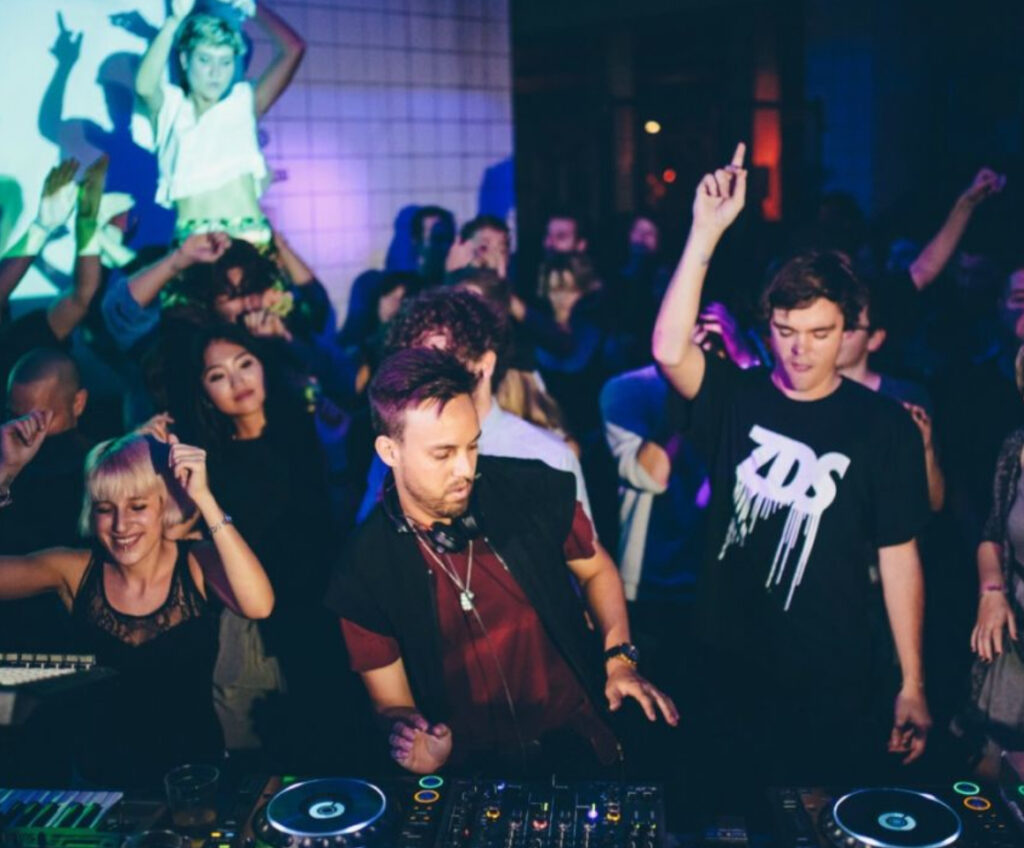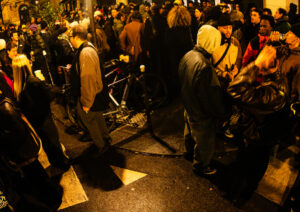In a rapidly evolving digital era, music streaming platforms have become central to the way we experience sound. Yet, few platforms have captured the raw, intimate energy of live performances and underground music scenes as effectively as Boiler Room. Founded in 2010, Boiler Room has grown from a niche project based in London into a globally recognized cultural phenomenon, reshaping the way people experience live music and redefining the relationship between artists and their audiences.
At its core, Boiler Room offers much more than live-streamed performances. It is a movement that democratizes access to music, bridges cultural divides, and serves as an incubator for some of the most innovative and boundary-pushing artists worldwide. With its unique format, inclusive ethos, and global reach, Boiler Room has become a vital force in modern music culture.
The Origins of Boiler Room
Boiler Room began in 2010 as a modest project, spearheaded by Blaise Bellville in a dilapidated warehouse in East London. Bellville and his small team aimed to provide a platform for underground DJs and artists who were often overlooked by mainstream outlets. The concept was simple: live-stream performances from intimate venues to an online audience. The name “Boiler Room” was inspired by the literal setting of its first sessions — a dusty, industrial boiler room.
What started as an informal experiment quickly gained traction. Early performances included sets by some of London’s most cutting-edge DJs, including the likes of Ben UFO and Jamie xx. The idea of showcasing raw, unfiltered talent resonated with audiences worldwide, sparking interest beyond London’s underground music scene.
What Sets Boiler Room Apart
Boiler Room’s success can be attributed to several key factors that differentiate it from traditional music platforms:
Intimacy and Raw Energy
One of the defining characteristics of Boiler Room is its focus on intimacy. Unlike large-scale music festivals or concerts, Boiler Room events are deliberately small and informal. Performers often play in close proximity to their audience, with cameras capturing the energy of the crowd as much as the artists themselves. This immersive format gives viewers the feeling of being present in the room, regardless of their physical location.
Global Representation
From the beginning, Boiler Room sought to break down barriers and represent diverse music scenes from around the world. After gaining a foothold in London, the platform quickly expanded to other cities, including Berlin, New York, Tokyo, Lagos, São Paulo, and beyond. Each event is tailored to the local culture, featuring artists who embody the unique sound and spirit of their communities.
Focus on Underground and Emerging Artists
While Boiler Room has hosted globally renowned artists like Solange, Thom Yorke, and Kaytranada, its primary mission has always been to spotlight emerging talent and underground scenes. The platform has introduced audiences to countless lesser-known DJs, producers, and musicians who might otherwise have struggled to find a global audience.
Unfiltered Visuals
The visual aesthetic of Boiler Room is another defining feature. Performances are shot in a raw, unpolished style, often with handheld cameras that capture the dynamic energy of the event. This approach contrasts sharply with the polished production of traditional live music broadcasts, lending Boiler Room an authentic and grassroots feel.
Accessibility
Boiler Room democratizes live music by streaming its performances for free. Viewers from anywhere in the world can tune in to watch live or archived sets, breaking down geographical and economic barriers to accessing music. This commitment to accessibility has helped Boiler Room build a diverse and dedicated global community.
Genres and Diversity
Boiler Room’s musical output is as eclectic as it is inclusive. The platform has featured a wide range of genres, including:
•Electronic and Dance Music: House, techno, garage, and drum and bass have been staples of Boiler Room since its inception.
•Hip-Hop and R&B: Boiler Room has increasingly embraced urban music, featuring groundbreaking artists like Jorja Smith, Skepta, and Joey Bada$$.
•World Music: From Afrobeat to Latin rhythms, Boiler Room often highlights traditional and contemporary music from around the globe.
•Jazz and Experimental Sounds: The platform has hosted jazz legends and experimental artists, demonstrating its commitment to pushing creative boundaries.
This diversity is central to Boiler Room’s identity, reflecting its ethos of inclusivity and its belief that music is a universal language.
The Global Expansion
Boiler Room’s growth into a global brand is one of its most remarkable achievements. By hosting events in cities around the world, Boiler Room has become a window into the unique sounds and subcultures of different regions. Some notable examples include:
Berlin
Known as the global capital of techno, Berlin has been a regular host for Boiler Room events. These sessions often feature heavyweights from the electronic music scene, performing in iconic venues like Berghain.
Lagos
Boiler Room has played a significant role in showcasing the vibrant music scene of Lagos, Nigeria. Events in the city have highlighted Afrobeat, Afrobeats, and other African genres, introducing them to a global audience.
São Paulo
Brazil’s rich musical heritage has been celebrated through Boiler Room events in São Paulo, featuring everything from samba and bossa nova to contemporary electronic music.
Tokyo
Boiler Room’s events in Tokyo have provided a platform for Japan’s innovative electronic artists, as well as its thriving hip-hop and experimental music scenes.
Culture
Boiler Room’s influence extends far beyond music. The platform has had a profound cultural impression, shaping the way people experience live performances and redefining the relationship between artists and audiences.
Bridging Communities
By showcasing diverse music scenes from around the world, Boiler Room has helped build bridges between communities. Viewers in one part of the world can discover the sounds of another, fostering a sense of connection and mutual appreciation.
Celebrating Subcultures
Boiler Room has always championed subcultures, giving them a platform to thrive. From grime in London to gqom in South Africa, the platform has introduced niche genres to a global audience, helping them gain recognition and respect.
Inspiring Artists
For many artists, performing on Boiler Room is a career milestone. The platform’s reputation for uncovering talent has helped launch countless careers, giving artists the exposure they need to reach a wider audience.
Pioneering Digital Experiences
Boiler Room has also been a pioneer in digital innovation. From live-streaming to virtual reality experiences, the platform has consistently pushed the boundaries of how music can be experienced online.
Criticism and Challenges
Despite its many achievements, Boiler Room has faced criticism and challenges over the years. Some of the most common critiques include:
•Commercialization: As Boiler Room has grown, some fans have accused it of losing touch with its underground roots and becoming overly commercialized.
•Representation Issues: While Boiler Room has made significant strides in representing diverse voices, it has occasionally faced criticism for not doing enough to support marginalized communities.
•Overexposure: The platform’s popularity has led to concerns that it might oversaturate certain music scenes, potentially diluting their authenticity.
Boiler Room has responded to these challenges by reaffirming its commitment to its core values and striving to balance its commercial success with its cultural mission.
Looking Ahead
As Boiler Room enters its second decade, the platform shows no signs of slowing down. Its future plans include expanding its reach even further, exploring new technologies, and continuing to champion emerging talent. Some potential areas of growth include:
•Virtual Events: Building on its experiments with virtual reality, Boiler Room could further explore immersive digital experiences, allowing audiences to interact with performances in new ways.
•Educational Initiatives: Boiler Room has the potential to serve as an educational resource, offering workshops and tutorials on music production, DJing, and event management.
•Sustainability: With the growing importance of environmental issues, Boiler Room could take steps to ensure its events are as sustainable as possible.
Boiler Room is more than just a music streaming platform — it is a cultural institution that has transformed the way people experience live music. By championing diversity, breaking down barriers, and celebrating creativity, Boiler Room has become a vital part of the global music ecosystem.
Its journey from a dusty East London warehouse to a global phenomenon is a testament to the power of innovation and the enduring appeal of live music. As it continues to evolve, Boiler Room will undoubtedly remain at the forefront of music and culture, inspiring artists and audiences alike for years to come.
No comments yet.







